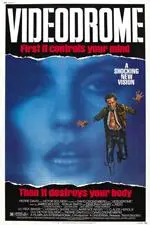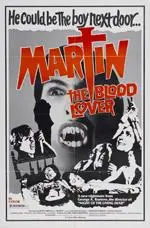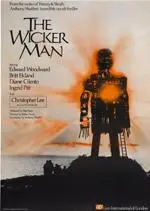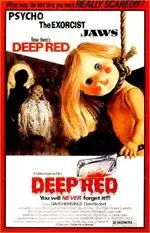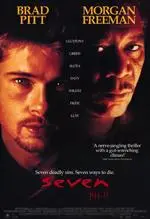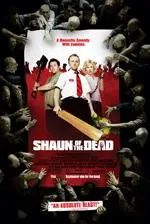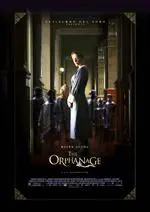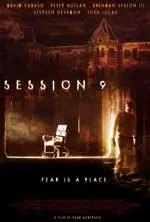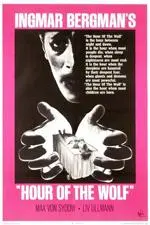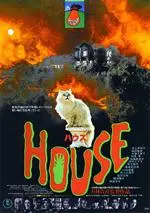It’s October, and for many of you, that means it’s time to gather ‘round the television set and consume media about ghosts, werewolves, vampires, zombies and serial killers. The trouble with this time-honored tradition, however, is that quality horror films are hard to come by these days, particularly if you’re relying on Netflix Instant Watch, whose collection is spotty at best. Where are the scary movies that both shock the senses and satisfy the audience’s craving for a narrative journey? Where are the films that explore the emotional arcs of fleshed-out, realistic characters as they battle unspeakable terrors? Can we get a decent midnight movie that also features good dialogue?
Yes we can. We can have it all. Here are ten exceptionally well-written horror films that give us both the quality and the spooky we seek (and deserve), presented in no particular order.
Now, before we set out on this Halloween excursion, I’ll warn you first off that there might be some “glaring” omissions in this column—namely, classic horror films like The Exorcist or Rosemary’s Baby. I’ve intentionally left these and other titles off the list because, 1.) everybody knows about them already, so attempting to sell you on the idea they’re excellent films seems like a redundant task, and 2.) I’ve decided to challenge myself a bit and focus on films made from original screenplays, solely because I feel there are more great horror films adapted from equally great novels out there than there are works written directly for the screen, and we should let those originals get the spotlight for once.
Another warning: spoilers may lie ahead…
![]() 1. "Videodrome' (1983)
1. "Videodrome' (1983)
When you watch a David Cronenberg film, you feel as though you’re reading a novel. The man knows how to lay on the psychological subtext and symbolism without sacrificing narrative economy. I don’t think there’s a better example of Cronenberg’s simultaneously lean and dense style than Videodrome. The plot follows sleazy TV producer Max Renn (James Woods) as he tumbles down a spiral staircase of what-the-fuckery after viewing a sadistic torture and murder show that bears the same name as the movie, which illegally broadcasts from Pittsburgh and is purported to be “the real thing,” i.e.: actual snuff.
The trick is, “Videodrome” comes prepackaged with hallucinogenic and mind-controlling properties, so for Renn, distinguishing between reality and hallucination becomes virtually impossible. Equal parts Raymond Chandler and William S. Burroughs, Videodrome will leave you scratching your head and pondering your own existence for days.
Best Line Of Dialogue
Brian Oblivion (what a name!): The television screen is the retina of the mind's eye. Therefore, the television screen is part of the physical structure of the brain. Therefore, whatever appears on the television screen emerges as raw experience for those who watch it. Therefore, television is reality, and reality is less than television.
![]() 2. 'Martin' (1976)
2. 'Martin' (1976)
Sure, everybody knows George Romero as the guy who created the modern zombie (he really did do this, people). But did you know he made a vampire movie? Well, probably not, since to call Martin a vampire movie would be like labeling To Kill A Mockingbird YA literature (technically correct, but such an understatement). The titular character in this underrated gem only believes he’s a vampire due to a familial obsession with Old World superstitions, reinforced daily by his overbearing uncle Cuda (a substitute for Van Helsing).
Martin may not be an 84 year-old vampire, but he does feed on humans, utilizing syringes full of sedatives to paralyze his victims and a razor blade to cut their wrists and drink their blood. Despite this brutishness, Romero writes Martin as a sympathetic figure, a victim of environment and poor mental health, giving us a narrative as much indebted to coming-of-age tales like Harper Lee’s seminal novel as it is to Universal monster movies (and a serious critique of organized religion and suffocating small towns). Sure, there are horrific and gory moments, but in-between those scenes, Martin is a smart, often hilarious character study.
Best Line Of Dialogue
Cuda (upon Martin’s arrival for an extended stay): Nosferatu. Vampire! First I will save your soul, then I will destroy you. I will show you your room.
![]() 3. 'The Wicker Man' (1973)
3. 'The Wicker Man' (1973)
The title of this film itself is a mystery, though it’s never alluded to in the course of the narrative. It’s an intriguing image that lingers in your subconscious as you watch Sergeant Neil Howie (Edward Woodward) investigate the disappearance of a young girl on Summerisle, an isolated Scottish island. His search is thwarted or otherwise made difficult by the local populace, who worship ancient Celtic gods and engage in Pagan rituals. Since Howie is a devout Christian (and, at times, overbearingly pious), his stay at Summerisle is all the more difficult.
Unfortunately, the twist ending to this magnificent film has been spoiled on numerous “Best of Horror” lists, and many focus on the ending as the one terrifying or well-written moment in the film. A shame, since every bit of dialogue, every surprise moment, every dip into the murky waters of the grotesque are masterful moves by seasoned storyteller Anthony Shaffer, the celebrated playwright and screenwriter of Sleuth and Alfred Hitchcock’s Frenzy. The Wicker Man is a game of chess—the checkmate’s important, but so are all the moves leading up to the end.
Best Line Of Dialogue
Lord Summerisle (played by Christopher Lee!): Do sit down, Sergeant. Shocks are so much better absorbed with the knees bent.
![]() 4. 'Deep Red' (1975)
4. 'Deep Red' (1975)
Considered by many to be the quintessential Giallo film—an Italian genre blending crime, noir, horror and extreme violence—Deep Red is, in my opinion, Dario Argento’s most crafty, head-scratching screenplay. It features mysteries piled upon mysteries, plot twists about every five minutes, characters that move from trustworthy to dubious and back again, and increasingly bizarre clues leading to the identity of the murderer (and, of course, each death is more gruesome than the last).
On paper, this labyrinthine narrative looks like a mess, but Argento and co-writer Bernardino Zapponi tie up every bit of outlandishness and resolve the film neatly. It’s one of those movies that makes you go, “Ohhhhhhhhhhhhh…” It’s also a nasty, blood-soaked ride through the streets of Rome, and the true progenitor of the slasher genre.
Some of you are probably more familiar with Argento’s Suspiria, and I almost included it on this list, but I realized that, while it’s an excellent film, it’s the visuals that make it great, and not so much the writing. Discuss
Best Line Of Dialogue
Marc: I'm just trying to understand, because... Carlo, you know, sometimes what you actually see and what you imagine get mixed up in your memory, like a cocktail from which you can no longer distinguish one flavor from another.
![]() 5. 'Se7en' (1995)
5. 'Se7en' (1995)
Okay, I said I wouldn’t talk about (in)famous movies, but I’m including Se7en for the simple fact that I still, to this day, have to convince people this is a horror movie. Maybe you’re saying, “Really?” with me, or maybe you’re one of those that need convincing. Well, I could write volumes on why screenwriter Andrew Kevin Walker and director David Fincher’s film belongs in the same category as Halloween and A Nightmare on Elm Street, but since I’m doing a list-based column, I’ll keep it simple: watching Se7en mirrors the experience of walking through a really good Haunted House attraction. The detective/mystery narrative serves as a tour guide, weaving you through chiaroscuro streets and chilling interiors; then, without warning, the guide throws you into grisly horror set pieces (crime scenes) featuring imagery so terrifying you won’t be able to shake them for months
Put even more simply, Se7en is basically a Giallo movie, except that the audience only sees the aftermath of the murders, and not the acts themselves. It’s also a smart, well-crafted story that shakes dust off the archaic concept of sin. If you still need convincing that this is a horror movie, consider that Saw, which everyone accepts as horror, is basically a poor man’s Se7en.
Best Exchange Of Dialogue
Somerset: This guy's methodical, exacting, and worst of all, patient.
Mills: He's a nut-bag. Just because the fucker's got a library card doesn't make him Yoda.
![]() 6. 'Shaun of the Dead' (2004)
6. 'Shaun of the Dead' (2004)
Yeah, I know, I’m breaking the “no famous movie” rule left and right here, but hey, sometimes rules are made to be broken, and in my opinion, you can’t talk about well-written horror movies without mentioning Shaun of the Dead. And yeah, I know, this is technically a horror comedy—some may even argue it’s all comedy with the “horror” elements used strictly for laughs—but again, I say, bah!
Here’s the thing: Shaun of the Dead, while perhaps one of the funniest films ever made, is also pretty intense in many sections, and every bit as gory as a Romero movie despite the jokes (and, by the way, Dawn of the Dead is pretty hilarious too); moreover, genre distinctions aside, Simon Pegg and Edgar Wright’s screenplay is simply sublime. Every character is nuanced and distinct, with dialogue that could only come out of their respective mouths; the dialogue itself is fluid and natural, but also poetically punny and laced with sly one-liners that require multiple viewings to notice in full; lines are subtly repeated throughout the film, creating this brilliant rhythm and pace; jokes are set-up sometimes hours in advance of the punch-line; every narrative thread is tied up neatly at the end, with a perfect denouement sewed like a button onto the last few seconds that makes me kiss my fingers and declare, “Tres magnifique!”
Seriously, do a Freytag analysis of Shaun’s narrative, and you’ll see, it is absolutely flawless. It should’ve been nominated for Best Picture in the year of its release. It should have won Best Picture in the year of its release, and every year following. Every zom-rom-com that followed should at least thank Wright and Pegg in the opening and closing credits. It truly doesn’t get much better than this.
Best Exchange Of Dialogue (extremely difficult to pick just one)
Ed: You gonna thank me then?
Shaun: For what?
Ed: Tidying up!
Shaun: Doesn't look that tidy.
Ed: Well, I had a few beers when I finished.
![]() 7. 'The Orphanage' (2007)
7. 'The Orphanage' (2007)
On the surface, this film may seem like your run-of-the-mill haunted house narrative, but make no mistake, you can chuck all those preconceived notions right out the window. Consider this: when asked by Deadbolt what films influenced The Orphanage, screenwriter Sergio Sanchez replied:
"I'm not really sure I had any cinematic influences when I was writing. My influences were more literary. One of them was Peter Pan. Basically, it was just that picture of Wendy's mother sitting by the window waiting for her child. That's the spark that ignited everything. I was thinking, it would be really interesting to tell the story of Peter Pan from the point of view of the mother. Then The Turn of the Screw by Henry James."
The literary merit of this film bleeds off the screen, as Sanchez relies on psychological terror and an unsettling sense of doom coursing like undercurrents throughout the narrative. No funhouse shocks, unnecessary violence, misogyny, nor predictability here. Watch The Orphanage in a darkened room, and you’ll swear you’ve reading a Victorian novel by candlelight. An unsettling, devastating, and beautiful narrative.
Best Line Of Dialogue
Aurora: When something terrible happens, sometimes it leaves a trace, a wound that acts as a knot between two time lines. It's like an echo, repeated over and over, waiting to be heard…Like a scar or a pinch that begs for a caress to relieve it.
![]() 8. 'Session 9' (2001)
8. 'Session 9' (2001)
A tale of lingering madness in an abandoned asylum—been there, done that, right? With Session 9, no, my friends, no you haven’t. Writers Brad Anderson and Stephen Gevedon serve up originality in heaps by withholding details until absolutely necessary and revealing said details organically. Centered around the slow, unnerving breakdown of a construction crew charged with renovating the aforementioned asylum, we the audience play the part of a spirit—perhaps that of a former doctor—wandering the dilapidated halls. Each character displays some kind of psychological malady, from Gordon’s increasingly temperamental mood, to Hank’s propensity to steal things. We’re forced to watch as the insanity boils over, but we’re powerless to do anything about it.
Not convinced? Then think about this: the film’s surprise climax should be visible from miles away, but it isn’t. To strip away the predictability of a typically predictable ending is the mark of truly exceptional writing.
Best Exchange Of Dialogue
Phil: [to the crew] Good first day, guys.
Henry: Yeah. If it keeps up like this, we'll all be dead by Monday.
![]() 9. 'Hour of the Wolf' (1968)
9. 'Hour of the Wolf' (1968)
Ingmar Bergman is maybe the quintessential literary filmmaker. The guy doesn’t write screenplays, but rather short stories of psychological exploration and character dissection, which he hands out to his actors and crew as a “blueprint” for the film he wishes to make. This process results in dense,heady films that are rich with meaning and subtext, and that often explore the darker regions of the human mind. Hour of the Wolf represents Bergman’s most grotesque and terrifying expression of madness, comparing the loss of one’s sanity to an evening spent with ghosts and negative spirits.
For Johan Borg (Max Von Sydow), the past literally comes back to haunt him, and his slow descent into their macabre world is truly nightmarish (for me, the idea of insanity, or the inability to trust your own mind, is quite scary); but Bergman also shows his audience, through the presence of Johan’s wife Alma (Liv Ullmann), the shaky ground partners of the insane stand on, and questions whether or not severe mental conditions can actually become contagious, given the right setting and circumstances. Hour of the Wolf is most definitely not your garden-variety, popcorn horror movie. Bring your thinking caps.
Best Exchange Of Dialogue
Johan: The old people used to call it “The Hour of the Wolf.” It’s the hour at which most people die and most children are born. It’s now that the nightmares come to us. And if we are awake...
Alma: We are afraid.
![]() 10. 'Hausu' (1977)
10. 'Hausu' (1977)
Hausu (AKA House) isn’t scary, though it features spooky elements (and LOTS of blood). It isn’t a comedy, though it is quite funny. Large portions of this film are animated, and overall it has the spirit of a cartoon—anything can happen, particularly if it’s absolutely bonkers and bat-shit insane. Writing for Criterion, Chuck Stephens calls Hausu “a modern masterpiece of le cinéma du WTF?!”
He’s correct. This is a film of pure, unfiltered imagination, a story constructed directly from the subconscious well of creation. It sprang from the mind of director Nobuhiko Ôbayashi’s eleven year old daughter Chigumi and was actualized on the page by writer Chiho Katsura. The creative minds at work here manage to present fully realized and realistic characters immersed in a narrative of rising and falling action; at the same time, the characters are culled from and named after stereotypes (Gorgeous is beautiful, Prof is smart, Kung Fu is tough), and the narrative is so looney-tunes and unhinged you wonder if you dreamt it. Hausu should be mandatory viewing for any writing class—an example of how to tap into the mainline of your creativity and just go. An essential film, whether it be Halloween, St. Patrick’s Day, or the Fourth of July.
Best Line Of Dialogue
Kung Fu (after ass-kicking a barrage of possessed fire logs): This is ridiculous.
I’ll be honest: my list of personal favorite well-written original horror films is much longer than this, and it was hard to choose only ten to discuss here. Furthermore, I could go on and on and on, to infinity, about the films I did select, but there simply isn’t enough time or space for one column. Perhaps I’ll return next year for a sequel…

About the author
Christopher Shultz writes plays and fiction. His works have appeared at The Inkwell Theatre's Playwrights' Night, and in Pseudopod, Unnerving Magazine, Apex Magazine, freeze frame flash fiction and Grievous Angel, among other places. He has also contributed columns on books and film at LitReactor, The Cinematropolis, and Tor.com. Christopher currently lives in Oklahoma City. More info at christophershultz.com
